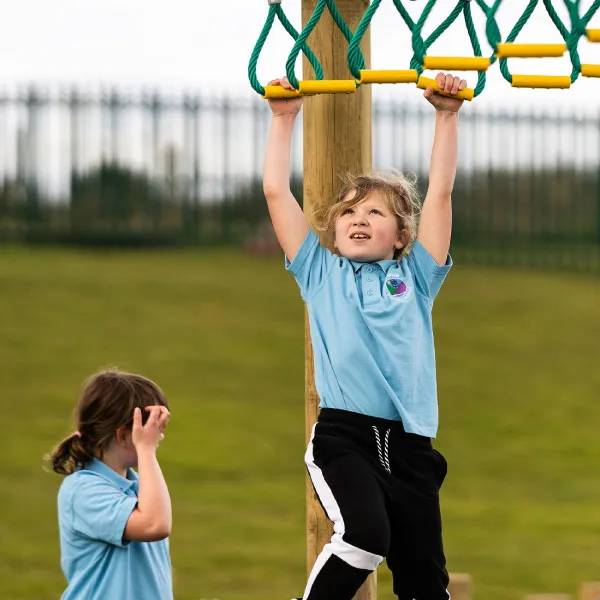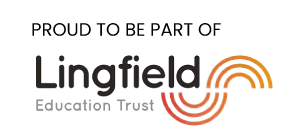Intent
Lingdale Primary School curriculum is all the planned activities which we organise in order to promote learning and personal growth and development. It includes not only the formal requirements of the 2014 National Curriculum, but also the curriculum guarantees we as a school provide to develop the independence and responsibility of all of our pupils. Our aim is to teach our pupils how to grow into confident, responsible people who can work effectively with others while developing knowledge and skills in order to achieve their full potential. We ensure that all children have a high quality personalised curriculum which is broad, deep and balanced: a relevant education which provides continuity and progression and takes individual differences into account. Our curriculum also links to our core values are ‘Be Respectful, Be Safe and Be Ready’.
The curriculum is organised under three main components.
- Early Years
- Key Stage 1
- Key Stage 2
Parents receive a termly class newsletter providing information about the curriculum for the term.
Teaching and Learning
At Lingdale Primary we provide a learning environment which is positive, rich and challenging to stimulate all children.
English and Maths are taught daily. We also provide a broad and balanced curriculum that meets the requirements of the National Curriculum. Other subjects taught in the school include Science, PE, ICT, RE, Design and Technology, Geography, History, Music, PSHE, Art and Design and French. We encourage creative thinking across the curriculum.
We maintain high standards of achievement through continuous assessment and tracking of children’s learning. Through this on-going process we build a picture of all aspects of each child’s development. Assessment takes many forms; we assess through discussion, marking, questioning and observation as well as using more formal procedures such as pre assessments, end of unit assessments and NFER tests.
Parents receive information about progress in their child’s annual school report, but discussions regarding progress form a significant part of our parent consultation meetings which are held in the Autumn and Spring terms. These are opportunities for the children to showcase their work and share their hard work with parents/carers.
Early Years
At Lingdale Primary School we are committed to providing a high-quality early year’s education which gives children a secure and confident start to their school life and nurtures a lifelong love of learning. This is achieved by developing children’s’ interests which influence the flow of our curriculum and supports children’s own choices and allows them to be individuals. Skillful practitioners scaffold children’s learning enabling them to develop along their own unique learning journey.
When parents and carers choose Lingdale Primary, we want them to be confident that we will keep their children safe and help them to thrive. The Early Years Foundation Stage (EYFS) applies to children from birth to the end of the reception year. In our school, most children join us for their pre-nursery experience in Little Explorers two year provision, complete their nursery experience and then enter full time schooling in September of the year in which they are five.
Key Stage 1
This is where we start to develop our children even further, establishing even greater independence and the basis for study skills. They become independent thinkers and we expand their naturally explorative minds. The transition from Foundation stage is made really easily, as the Autumn Term is spent combining familiar activities from Foundation Stage whilst gradually introducing new activities.
The classroom is a familiar environment with lots of areas of continuous provision such as a Creative area, Writing area, Maths area and a Construction area which helps the children settle in really quickly. We continue to focus on Phonics, English and Maths and we also begin to sit on the carpet for longer periods of time.
There is a big focus on developing children’s early skills as readers, with the expectation that children “learn to read” in KS1 so that they can “read to learn” throughout the rest of their time in school. We are committed to our delivery of phonics, through daily “Read, Write Inc” lessons, whole class reading sessions, high quality texts used in English lessons and within the classroom and the commitment to children reading 1:1 with adults in school. Other key curriculum areas are writing and mathematics. Teaching is planned to ensure that children make progress with their core skills in these areas and daily use of these key skills throughout the day are an important part of this. We work hard to ensure that children are active and engaged in their learning at all times and make the most of outdoor learning and our linked learning zones.
Key Stage 2
Our aim here is to develop real independence, creativity and flair. Children set the basis for their adult life here and that is why it is so important to help them feel confident about who they are, build on their natural talents and teach them the resilient skills required for the next phase of learning. We take great pleasure from watching them achieve success.
As the key stage progresses we hope to develop learners who are able to work with increased independence while learning lots of new things. As well as studying the core subjects, during Key Stage 2 we study some exciting topics. Our history based topics include World War 1 and 2, the Romans and the Stone Age, whereas our topics with a geography focus include volcanoes and marvellous mapping. Where possible, links are made with our theme during our studies in other subjects.
Year 6 is our final year of Primary School and an extremely busy one. We continue to develop the independent working skills which have been fostered throughout Key Stage 2, taking on increasing responsibility for children’s own learning in preparation for secondary school.
I



